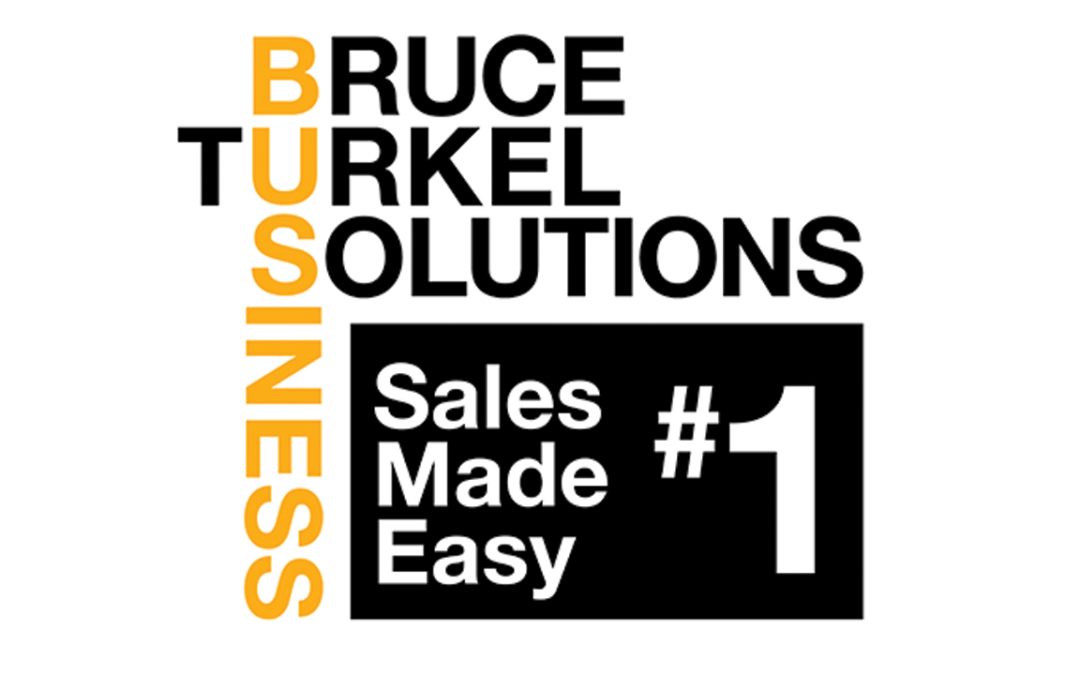Click HERE to watch the video
Sales Made Easy 1
Last week’s conversation on simplicity inspired so many comments and likes on Social Media that I think it’s worth continuing.
Leonardo da Vinci wrote, “Simplicity is the ultimate sophistication.”
Confucius said, “Life is really simple, but we insist on making it complicated.”
Chopin stated, “Simplicity is the final achievement.”
Those brilliant minds got it right. So why do we spend so much time, money, effort, and heartache making our businesses more complicated than they need to be?
Is it because we don’t have confidence in our good ideas?
Could it be because we need to justify our labor?
Is it just that it’s hard to make things easy?
I’ve been simplifying sales messages with my clients for the last 30 years or more. In my third book, Building Brand Value, I described the seven points for building a compelling brand. The third point was “Make It Simple.”
Because I try to live by that mantra, I worked to keep the analogies I used to help build my client’s brands and businesses as short as possible. The result was that almost all the rules were just four words long.
In my ongoing effort to provide powerful suggestions to help build your brand and your business, I plan to use the following ten blogs to share these Four-word Rules for Success with you.
Sales Made Easy 1
So, let’s start with a story:
I was helping a tech client present their new breakthrough product to a Fortune 500 company. It was such a pivotal meeting that the prospect had sent its best thinkers—its CIO and CMO, and its VPs of marketing, product development, and consumer insight.
The Fortune 500 team loved the idea we presented. They found an immediate connection between the product and their customers and quickly saw how the new program would enhance customer loyalty and generate new revenue.
I was sure we were going to close the deal.
There was only one problem: My client wouldn’t stop selling.
She was so wrapped up in her pitch that she didn’t realize that as she explained every bit of the plan in excruciating detail, her interested customer was losing interest.
When we finally wrapped it up and got out to the sidewalk, the client high-fived everyone on the team. On the way to the airport, she treated us to a celebratory dinner and a few great bottles of wine.
But when the buyers called a few days later, they were no longer buyers. Instead, they said they were “putting the project on the back burner” and “going in another direction.”
That’s corpspeak for: “Don’t call us; we’ll call you.”
Sales Made Easy 1
What happened? Simple. My client violated the cardinal rule of sales: “Always take ‘yes’ for an answer.” Her prospect wanted to buy until she convinced them that maybe they didn’t.
Who cares if you spent weeks on your PowerPoint? Who cares if you’re only up to page four of a 28-page deck? Who cares if you flew halfway across the country to make your presentation? When your buyer says they are ready to sign up, stop selling.
Showing your whole dog-and-pony show isn’t the goal — getting to “Yes” is why you’re there.
Decisions are made without all the facts all the time. Once the purchase decision has been made, more facts might reinforce the deal. But they could also kill it. Once you’ve got a “Yes,” why risk snatching defeat from the jaws of victory?
Sales Made Easy 1
The simple solution in presentations—especially ones that go well—is to be quiet and let your buyer talk. To do that, remember Sales Made Easy 1: “Shut the @#$%!! up.”


Critically important for Sales people to never forget; “you never learn anything when you’re talking.”
WAIT, I tell myself. That is an acronym for Why Am I Talking
I love that Amy. Thank you. I’m going to use it.
As a “persuader” in the courtroom, sadly the truth does not always win. Most clients never understand that while they may have told the truth and should have won, they “oversold” with answers that looked defensive. Credibility is the number one key and your points here are an absolute rule. KISS is the mantra of every great trial lawyer. Keep It Simple Stupid. Not sure who the stupid refers to, but you get the point.
A great article here and valid points for everything in life.
Thanks, Scott. I think we all THINK we know who the “stupid” is.
At least we believe it’s not us…
Love that someone who get’s paid to speak to people is telling me to “Shut the @#$%!! up.”
That is ironic, especially since I try to follow that advice as much as possible, Mike. Thanks for pointing it out to me.
Hi Bruce,
As usual, so on target. Why is it so hard to recognize a yes and accept it? Lack of belief in your product or strategy? And understanding that a yes is the beginning, not the end.
Thank you.
Simply put, thank you.
I have won more projects by stopping the pppt presentation and quickly sketching ideas, thoughts, brain mapping… than continuing to the end. I have also changed my pppt’s to include solution sketches/models of other projects rather than a possible solution to the client sitting in front of me. I love your concept of “stopping” a presentation and keeping them on the hook for more ideas – “let’s sign a contract”!
Yes!! I’ve done the same thing, Max. When I sketch out ideas, I usually do them upside down because I’m sitting across the table from the client. At some point, they notice and say, “Do you realize you’re drawing upside down?”
Although you and I can do that without overthinking, they’re always amazed, reinforcing that they’re hiring the right person.